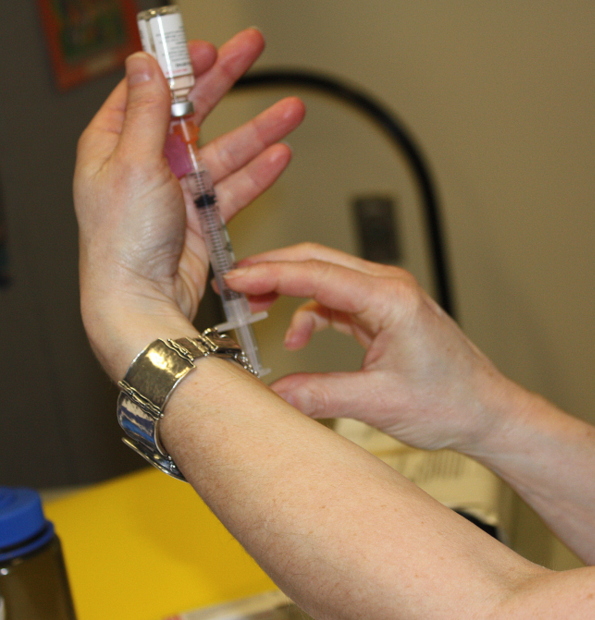Prepping for Flu Season
Prince George, B.C. – The annual flu vaccine program may still be a little over a month away, but Northern Health is preparing for it.
” We expect to start receiving vaccine in mid October and the Provincial roll out will start November 2nd” says Carolyn Bouchard, Manager of the Public Health Nursing Program with Northern Health.
The vaccine this year is designed to battle H1N1 (“A” California) H3N2 (“A” Switzerland) as well as one of the “B” strains of flu.
The vaccination clinics will be scheduled for early November, once the vaccine has been distributed to health care facility staff to ensure they don’t pass along the flu bug to any in their care.
The good news is, there hasn’t been any indication that the flu season will be particularly bad, as the southern hemisphere is just coming out of its flu season and there haven’t been any indicators of a bad flu season in that part of the world.
But , Bouchard says respiratory illness, especially pertussis (whooping cough) has started to surface in the community. “School is back in, we have had some cases pf pertussis, we normally do see a seasonal rise, but we advise people, the same advice when we are dealing with the flu, practice cough etiquette, frequent hand washing and stay home if you’re sick.” She says it’s also important for people to remember vaccine’s are not 100%, that even though you may have had all your whooping cough, or flu shots, you may still come down with a case of either illness, but it won’t be as bad as if you hadn’t had the vaccine.
Flu vaccine will be made available at clinics, at pharmacies and at the office of your family Doctor.


Comments
The whooping cough and flu vaccines are ineffective and Northern Health knows it, but will continue pushing these vaccines with “you may still come down with a case of either illness, but it won’t be as bad as if you hadn’t had the vaccine.” That statement isn’t true either. Notice it’s no longer vaccines are “safe and effective”?
Whooping cough is breaking out mainly in the vaccinated population – some have been hospitalized.
From the NVIC website: “Even with super high pertussis vaccine coverage in America and other countries like the Netherlands, Australia, Finland and Canada,whooping cough disease cannot be prevented. There are two main reasons for this fact.
First, pertussis vaccines widely used since the 1950’s have not
prevented whooping cough disease from circulating in vaccinated
populations. Unknown numbers of children and adults, who have gotten all
government recommended pertussis shots, can and do develop whooping
cough or are carriers without symptoms.
Because pertussis vaccine immunity is only temporary and does not
last, health officials are now telling teenagers and adults to get more
booster shots.
But that is not going to matter if scientific evidence that B.
pertussis organisms have mutated and become vaccine-resistant turns out
to be correct.
A second important reason is that another Bordetella organism – parapertussis – also can cause whooping cough. B.
parapertussis symptoms, while often milder, can look exactly like B.
pertussis. But doctors rarely recognize or test for parapertussis. And there is NO vaccine for parapertussis.”
articles.mercola.com/sites/articles/archive/2012/07/30/whooping-cough-vaccine.aspx
Comments for this article are closed.